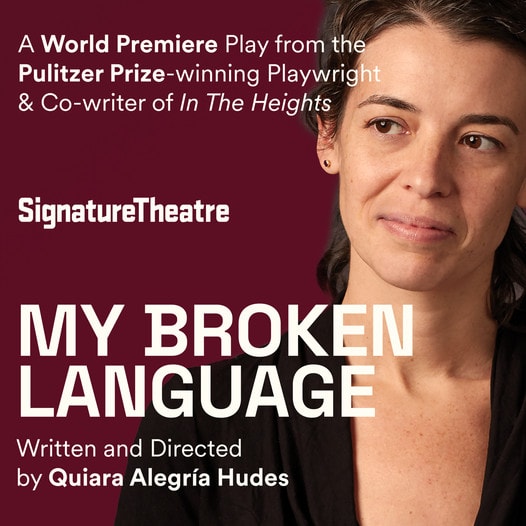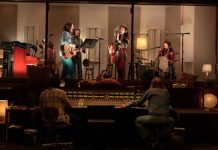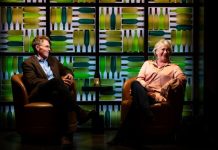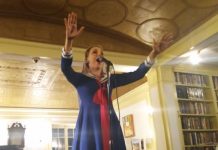In My Broken Language, now in its world-premiere Off-Broadway engagement at Pershing Square Signature Theatre, Pulitzer Prize-winning playwright Quiara Alegría Hudes, who also directs, employs an interplay of monologues, live music, and movement to convey her recollections of the unforgettable women who had an impact on her while growing up in the barrio of Philadelphia in the 1990s, in the largely matriarchal Puerto Rican Perez family. Based on her eponymous memoir of 2021, the stage adaptation marks Hudes’ second play in her Premiere Residency with Signature (the first was the 2016 world premiere of Daphne’s Dive).
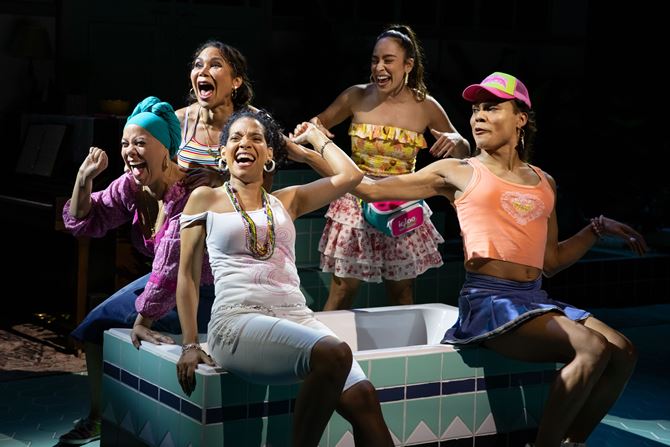
An all-Latina ensemble cast of five – Zabryna Guevara, Yani Marin, Samora la Perdida, Daphne Rubin-Vega, and Marilyn Torres – alternate in embodying the central character of Hudes, expressing the multiplicity of her memories, thoughts, and feelings, and conflicted experiences of joy and grief, with distinctive voices, appearances, and demeanors that suggest the complexity of the individual at different times, in different situations, with different people. They also portray her mother, grandmother, cousins, and others, in reminiscences of an extended multigenerational family held together by women, in a work presented in the format of seven movements, accompanied by on-stage pianist Ariacne Trujillo Duran, whose musical interludes support the shifting moods of the stories and the expressionist choreography by Ebony Williams.
Though the segments are arranged chronologically, from 1988-2004, ages ten to 26, the experimental style of the show isn’t consistently linear or realistic. While Hudes’ writing – primarily in English, with passages in Spanish, Spanglish, and Yoruba – is eloquent, poetic, and detailed (often graphically so), the interspersed non-verbal pieces of music and movement bring elements of abstraction that form a language of their own, exploring the thoughts and images that defy description by words alone, or leave her at a loss for words. And while those non-traditional elements bring Hudes’ autobiography to life, much of the movement can seem an overly long redundancy of her award-winning writing. But together they bespeak the playwright’s titular “broken language” and her emphasis on the heightened presence and diverse aspects of the female body (not material possessions or money) that were a major part of her legacy.
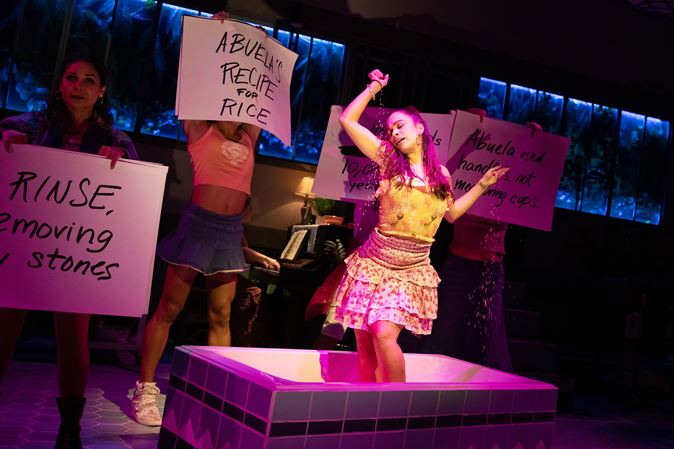
Among the episodes, most set in North and West Philadelphia, are a childhood trip with an array of cousins of different ages, personalities, and body types to an amusement park in NJ, while suffering from what she thought was carsickness; witnessing the convulsive spirit possession of her mother, a practitioner of Santería with an altar in their home; the premature death of her ebullient cousin Mary Lou, and many other members of her family; a visit to the Philadelphia Museum of Art, in which she was especially affected by Marcel Duchamp’s provocative “Étant donnés” installation of a reclining nude woman; a “rice ballet” of her grandmother’s recipe, which used her hands and oral instructions, not written measurements; and discovering a disturbing discrepancy in the quality of their education while dyeing her cousin’s hair, then expressing her love of books (including for colored girls who have considered suicide/when the rainbow is enuf – a clear precedent for the show’s theatrical style of combining monologue, music, and movement). It concludes with a defining scene of Hudes as a graduate student at Brown University, writing a play, partly on auto-pilot, “spun from the Perez body.”
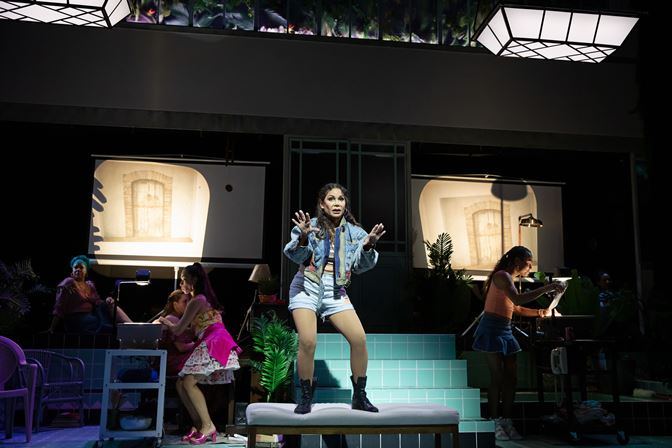
The production’s artistic design encompasses the range of sentiments and memories, with music supervision and arrangements by Alex Lacamoire (including two of his original compositions), evocative sound by Leah Gelpe and lighting by Jen Schriever, which signal breaks in style and genre that aren’t always straightforward and fluid but are often abrupt and conflicting, in keeping with the “broken language” theme. Costumes by Dede Ayite, and wigs, hair, and make-up by J. Jared Janas, are suited to the era, the figures, and their personal flair, and Arnulfo Maldonado’s thrust set, with its blue tiles, ceiling fans, tropical plants, and multiple bathtubs, reflects the family’s Puerto Rican heritage and the physical and metaphorical cleansing of the characters in Hudes’ exposed remembrances, while allowing enough space for the movement-based performances, and for the audience, seated around the stage on three sides, to experience her intimate impressions up close.
Running Time: Approximately 90 minutes, without intermission.
My Broken Language plays through Sunday, November 27, 2022, at the Pershing Square Signature Theatre, 480 West 42nd Street, NYC. For tickets (priced at $49-139, plus fees), call (212) 244-7529, or go online. Masks are required inside the theater.


